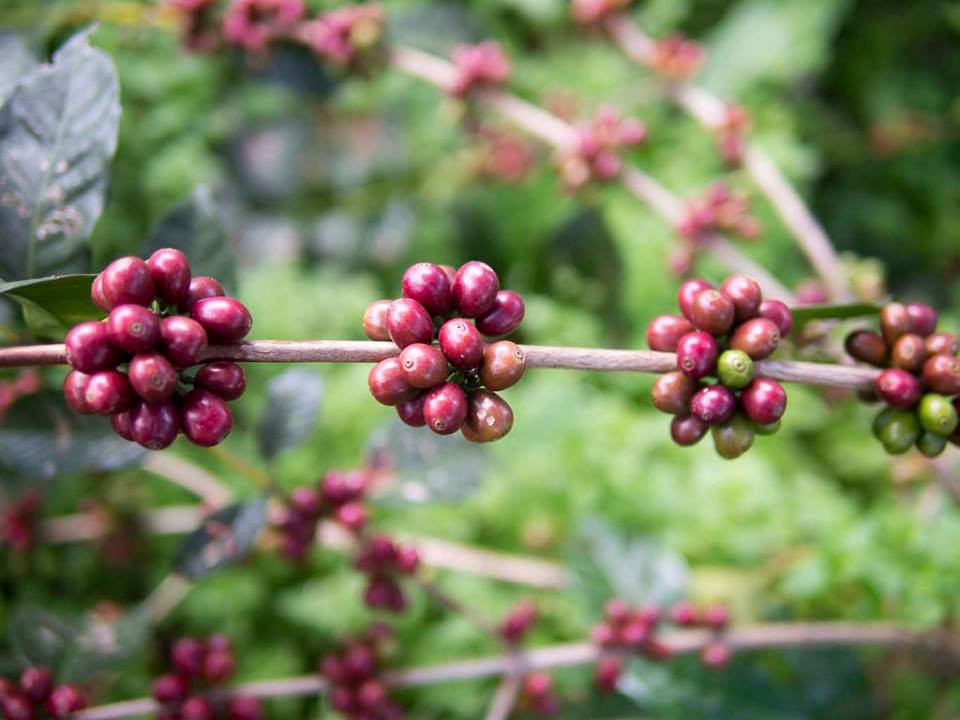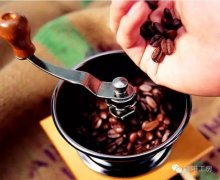What is mocha coffee? the planting conditions, treatment methods and flavor characteristics of mocha coffee.

Professional coffee knowledge exchange more coffee bean information please follow the coffee workshop (Wechat official account cafe_style)
When it comes to Yemeni coffee, mocha must be mentioned. Everyone has heard of mocha coffee, so what exactly is mocha?
There are many answers to this question. Some people say that mocha is a certain place of origin, and some people remember that mocha is sweet chocolate coffee. In fact, authentic mocha coffee is only produced in the Republic of Yemen in the southwest of the Arabian Peninsula, grows on steep hillsides at elevations of 3, 000 to 8, 000 feet, and is the oldest coffee in the world.
The Yemeni mocha is the originator of the world coffee trade and plays an important role in promoting delicious coffee all over the world. In the 17th century, it was called "Arabica coffee" (Arabia) (this is also the origin of the name of Arabica! The Yemeni mocha sailed across the ocean to Italy and other European Catholic countries, which amazed Europeans. The delicious coffee shipped from the port of Mocha is called mocha coffee, which is the origin of the name mocha coffee. Since then, Yemeni coffee has been the only coffee producer sold to Europe for more than 150 years.
The mention of Yemeni coffee immediately reminds people of magical sun-dried beans that taste thick and full, with layers of fantasy and wild aromas like fermented tea, as mysterious and elusive as the Yemeni country. Yemen is located in Ethiopia across the Red Sea and East Africa in Asia, and is the highest quality producer of natural sunburn coffee. The coffee produced in Yemen is called mocha beans. In fact, Mocha is an export port of coffee. In the early days, sun beans including nearby East Africa were exported from the port of Mocha to all parts of the world, so the sun beans produced in Ethiopia, including Yemen and East Africa, are collectively called Moka beans. The natural sun treatment in Yemen is to manually harvest fully ripe coffee beans and directly place the newly harvested coffee beans in a special coffee drying yard or in their own compacted soil front yard to receive the sun. During the sun drying period with Taiwan, rice is usually turned over with a wooden rake to keep each bean evenly dried. After about 20 days of coffee drying, the outer pulp and peel are removed from the coffee beans. Yemeni coffee is rich in flavor. Complicated? Wild? Mellow? With its strong fermented taste and low acidity, coupled with the uncertainty of Yemeni coffee (when it rains in the season), it is no exaggeration to call it the most special coffee in the world.
Yemeni coffee grows on steep land with little rainfall, poor land and insufficient sunshine. This unique and difficult condition is not conducive to coffee growth, but it has given birth to a Yemeni mocha that can not be replaced by the coffee world. The main coffee producing area is Sanani? Matari? Yishi Mary (Ismaili).
The coffee is not the same size, the color difference is quite large, it looks like a small pea and a shell of bad beans (pictured in Boulogg), raw beans have a fermented wine aroma, unlike Ethiopian red cherry coffee with eye-catching strawberry sandwich biscuit aroma, but low-key, calm and full flavor of fermented wine is unmatched by sun beans in other countries. There are many empty shell beans in the Yemeni mocha raw beans with different sizes and colors, which is the characteristic of the Yemeni mocha and the reason for its uncertain fragrance.
Today, Yemeni coffee farmers still produce coffee in the same way as they did 500 years ago.
Coffee berries grow naturally on trees, do not use any artificial fertilizers or pesticides, receive a small amount of rain and fog on the hillside in summer, blossom and bear fruit, and in dry winter, ripe coffee berries are allowed to hang on trees to dry naturally-a very unique and rare practice because of the extremely dry climate and intense sun in Arabia, which is allowed to do so in other coffee producing areas. The same practice may cause coffee berries to rot on the trees.
Ripe or dried coffee berries fall naturally from the tree, or are shaken and picked. Coffee farmers, with a total population of nearly 1/4 in Yemen, bask their berries on their roofs, low sheds in front of their doors, or even spread them directly on the dirt floor, exposed to the intense dry winter sun. After drying the peel and pulp, grind off the dried shell and pulp with an old-fashioned stone mill (two stone mills stacked on top of each other). This is how the coffee beans are treated!
A small number of coffee farmers in Yemen still use animals (such as camels and donkeys) as a source of stone grinding power. Compared with the Central and South American countries that use advanced machinery and equipment to deal with coffee beans in large quantities, and even neighboring Kenya, which has a short history of coffee, the Yemeni mocha is the only living monument in the coffee world! Do you know? The Yemeni coffee you drink today is basically not much different from the "Arabian coffee" enjoyed by aristocratic European businessmen hundreds of years ago in the oldest coffee shop in Europe in the square of St. Mark's in Venice, Italy.
Compared with the washing method used in most coffee producing areas in the world, Yemeni coffee is completely sun-treated, and the process of stone grinding (crushing with two stone mills) makes chopped beans mixed, resulting in an irregular appearance. Raw beans are often mixed with twigs, small stones and even sun-dried insects (which are screened out during baking). It also has the most unique, rich and fascinating complex smell in the world: red wine, wild game, dried fruit, blueberries, grapes, cinnamon, tobacco, sweet spices, logs and even chocolate. You can see all kinds of adjectives used to describe Yemeni mocha!
Because of the sun-dried pulp, the flavor of the coffee berries has a chance to "seep" into the coffee beans, and when the coffee fruit falls on the dry soil of the African plateau, it will also absorb the smell of the surrounding organic matter. In addition, the "sun smell" given by the fierce winter sun in the Arabian Peninsula (you can smell a similar smell on the sunburned quilt), the naturally fermented ripe fruit flavor of the flesh, a little earthy flavor. There are 300,000 coffee plantations ranging from 3000 to 8000 feet above sea level, as well as ancient, 100% organic treatments that make the Yemeni mocha unique in the world.
There are no general guidelines for the naming of Yemeni coffee, and there is no official grading system. Local residents have their own classification system, with hundreds of coffee codes and names for internal classification, but it is not applicable to commercial markets (for export). In the commercial market, the Yemeni mocha is usually named in one of two ways: "place name", or "tree species name".
In the common Yemeni mokas, Mokha Mattari is the most famous. Produced in the province of Bani Matar (also known as Bany Mattar), Madali is a coffee produced at high altitude. it usually has a good aroma of red wine, dry fruit, thick taste, deep roasting and often sweet chocolate caramel.
Due to the sharp decline in production due to political instability in Yemen in recent years, Mokamadali, the most famous coffee industry, has become a target for water adulteration, sometimes mixed with lower-grade shoddy beans. Nowadays, even if it is marked as Madali, it is not a guarantee of high quality. Good quality Madali beans are small, raw beans have sweet wine aroma and moderate ripe fruit fermentation flavor, excellent Madali performance will never let coffee gluttons down!
Important Notice :
前街咖啡 FrontStreet Coffee has moved to new addredd:
FrontStreet Coffee Address: 315,Donghua East Road,GuangZhou
Tel:020 38364473
- Prev

What's the flavor of Kenyan coffee? Kenya is suitable for cooking?
Professional coffee knowledge exchange more coffee bean information Please pay attention to Coffee Workshop (Wechat official account cafe_style) Kenya, located in East Africa, is one of the major coffee producing countries. More than 6 million people in the country are engaged in the coffee industry, mostly in the form of a combination of small farmers and cooperatives. Coffee trees in Kenya are mostly planted at 1400-2000 meters above sea level, and the growth area includes Ruiri.
- Next

What are the producing areas of Brazilian coffee beans? Characteristics of Brazilian coffee beans
Professional coffee knowledge exchange more coffee bean information please follow the coffee workshop (Wechat official account cafe_style) Brazil has seven states producing coffee, a total of 14 coffee producing areas Sao Paulo (Mogiana, Centro-Oeste) Parana (Norte Pionerio do Paran) Bahia (Planaltoda Bahia, Cerrado da Bahia, Atlantic)
Related
- Detailed explanation of Jadeite planting Land in Panamanian Jadeite Manor introduction to the grading system of Jadeite competitive bidding, Red bid, Green bid and Rose Summer
- Story of Coffee planting in Brenka region of Costa Rica Stonehenge Manor anaerobic heavy honey treatment of flavor mouth
- What's on the barrel of Blue Mountain Coffee beans?
- Can American coffee also pull flowers? How to use hot American style to pull out a good-looking pattern?
- Can you make a cold extract with coffee beans? What is the right proportion for cold-extracted coffee formula?
- Indonesian PWN Gold Mandrine Coffee Origin Features Flavor How to Chong? Mandolin coffee is American.
- A brief introduction to the flavor characteristics of Brazilian yellow bourbon coffee beans
- What is the effect of different water quality on the flavor of cold-extracted coffee? What kind of water is best for brewing coffee?
- Why do you think of Rose Summer whenever you mention Panamanian coffee?
- Introduction to the characteristics of authentic blue mountain coffee bean producing areas? What is the CIB Coffee Authority in Jamaica?

